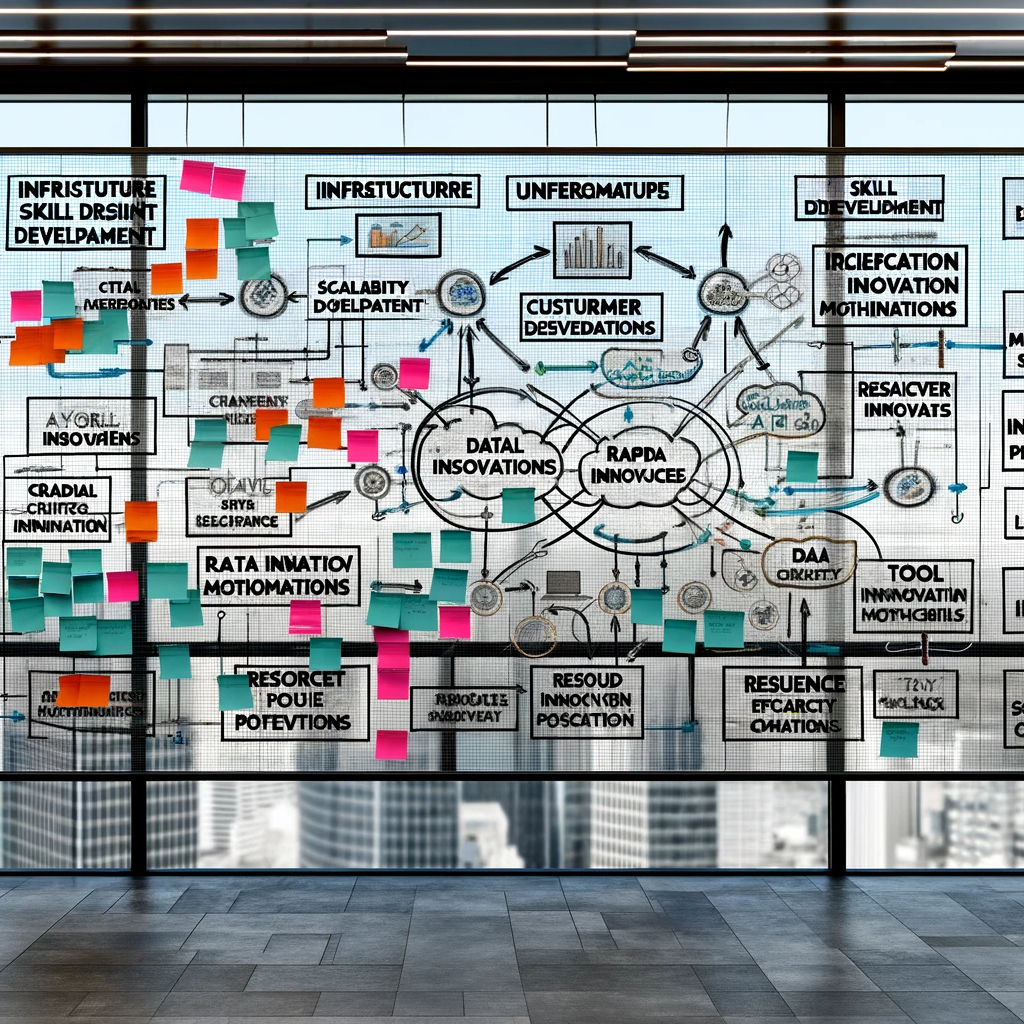You now see it everywhere, all the time, from everyone: recommendations for new, cool, and very useful AI apps that are the latest thing to boost productivity. What are the risks associated with this proliferation of tool recommendations and early adoption in corporations?
Some balloons come with strings attached
Consumer AI tools have seen explosive growth, promising to revolutionize how we work, communicate, and organize our lives. While these tools offer enticing benefits, such as enhanced productivity and convenience, they can also pose significant dangers when deployed in corporate environments without proper guidance.
Let’s explore why businesses should consider specialized corporate applications to navigate their unique challenges effectively.
1. Data Security and Privacy Concerns
Think twice before uploading that corporate document to your personal assistant chat. Many consumer AI apps are designed for individual use and may not offer the level of data security and privacy protection that corporations require. The use of such tools can expose sensitive corporate data to potential breaches, leaks, or misuse. This is particularly concerning when dealing with confidential information or customer data, which can result in legal ramifications and loss of trust.
2. Lack of Control and Compliance
Corporations have specific needs for control and compliance, especially in highly regulated industries. Consumer AI tools often lack the necessary features for logging, auditing, and managing user actions, which can lead to issues with regulatory compliance. Additionally, these tools might not integrate well with existing enterprise systems (or not integrate at all), creating inefficiencies and vulnerabilities.
3. Shadow IT and Fragmentation
When employees independently adopt consumer AI apps without corporate oversight, it leads to “shadow IT” – systems and solutions used within an organization without explicit approval. This can result in a fragmented IT landscape, making it challenging for IT departments to manage and secure the organization’s tech stack effectively.
4. Inconsistent Performance and Reliability
Consumer AI tools are typically designed for general use and may not offer the performance or reliability needed for critical business operations. Unexpected outages, limitations, or changes in functionality can disrupt workflows and harm productivity, particularly if the tools are relied upon for key tasks.
5. Lack of Accountability
Support for consumer AI tools is often limited, and accountability for issues may be unclear. In a corporate environment, this can lead to frustration and operational delays when problems arise. Without reliable support, businesses may find it difficult to address issues promptly, leading to potential downtime or lost opportunities.
Balancing innovation with caution
Corporate grade AI refers to applications designed for businesses, with the primary goal being to optimize operations, improve decision-making processes, or increase profitability. While consumer AI tools can offer valuable enhancements, it’s crucial for corporations to carefully evaluate and manage their adoption. This includes:
- Establishing Clear Policies: Corporations should have clear policies regarding the use of consumer AI tools, outlining acceptable use, security requirements, and approved solutions.
- Evaluating Security and Compliance: Before adopting any tool, businesses should assess its security features, compliance capabilities, and potential risks.
- Providing Enterprise-Grade Solutions: Offering approved enterprise-grade alternatives can help prevent shadow IT and ensure that employees have reliable, secure tools to enhance productivity.
- Monitoring and Managing: Regularly monitoring the use of consumer AI tools and managing their integration with corporate systems can help mitigate risks and ensure alignment with business objectives.
One AI to rule them all
One significant advantage of corporate apps over consumer apps is the ability to implement cross-learning through a centralized administration system. Unlike consumer apps, which are designed for individual use, corporate apps can integrate systems that facilitate the sharing of knowledge and skills across the entire organization. This integration allows for the uniform training of employees, ensuring that everyone, regardless of their department or role, has access to the same resources and learning opportunities. Central administration also enables management to track progress and effectiveness, adjusting training programs to meet the evolving needs of the company and its workforce.
Keep your Secret Sauce secret
Privacy and security are paramount in the corporate world, where sensitive data is frequently exchanged and stored. Consumer apps often lack the stringent security measures required to protect corporate data against breaches and cyber threats. Corporate applications, on the other hand, are specifically designed with enhanced security protocols to safeguard information. These include advanced encryption methods, multi-factor authentication, and regular security audits—features typically absent in consumer-grade solutions. Your AI may need to know everything about your company.
Each corporation has its own set of strategies, learning curves, and experiences that shape its needs and goals. Consumer apps are generally one-size-fits-all and lack the flexibility needed to align with specific corporate strategies. Corporate apps are tailor-made to address these needs, offering customization that can integrate a company’s unique workflow, branding, and operational tactics. This level of customization ensures that the software not only fits seamlessly into the company’s ecosystem but with a heavy requirement on important company information.
Integrate and blend
Integration with existing corporate infrastructure is crucial for the seamless operation of any business software. Consumer apps often require additional configuration and can even be incompatible with corporate systems. Corporate applications are built from the ground up to integrate directly with the company’s IT environment, including hardware, databases, and other essential software systems. This direct connection reduces compatibility issues, streamlines processes, and enhances data integrity across different platforms within the organization.
Cost Considerations
While the initial cost of developing or purchasing bespoke corporate applications can be higher than adopting off-the-shelf consumer apps, the long-term benefits and cost savings are substantial. Custom corporate apps reduce the need for multiple disjointed tools and mitigate risks associated with data breaches, which can be incredibly costly. Additionally, by enhancing productivity and efficiency, customized applications deliver a return on investment that far outweighs the initial costs, making them a wise financial decision for most corporations.
Let’s keep exploring together
In conclusion, while consumer apps provide baseline functionality, they are not equipped to meet the multifaceted needs of modern corporations and may even generate risks and liabilities.
Businesses seeking to foster a secure, efficient, and integrated technological environment should invest in corporate grade applications. These tools not only address the unique challenges faced by businesses but also support strategic alignment and operational excellence. As corporations continue to evolve, the move towards specialized corporate applications will be pivotal in maintaining competitive advantage and operational integrity in a digitally driven world.







